Splash Pro Gen-2 AI Lets You Craft Licensable Music and Vocals from a Text Prompt — Here’s How
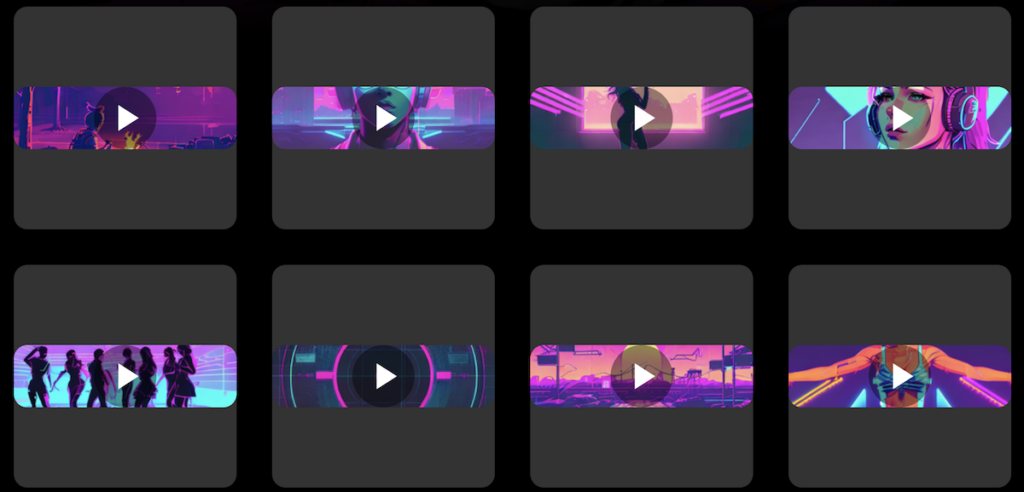
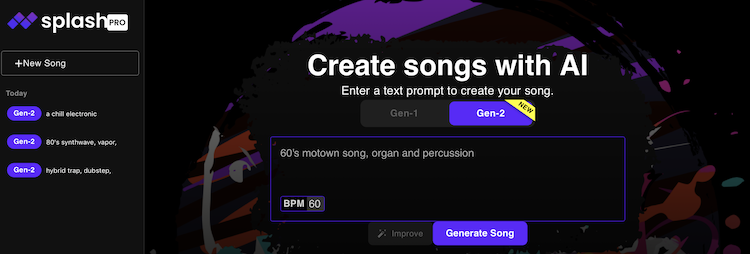
Users can quickly sign up for the Splash Pro free tier, reveals Splash General Manager Tarika Wickremeratne.
Generative AI platform Splash just released its Gen-2 feature, allowing users to generate new music, lyrics, and vocals from a text prompt. Splash’s models are exclusively trained on a self-owned music library of loops composed by the platform’s music team — allowing Splash to offer broad and flexible commercial licenses to users.
Tarika Wickremeratne, General Manager at Splash, recently sat down with Digital Music News to explain how the generative AI platform transcends the standards set by other generative music companies that do not own their proprietary datasets.
Splash enlisted an entire music team that recorded hours of several musicians playing music and singing to create a fully generative AI music and vocals library. This in-house library trained their AI model to generate music and vocals via a simple text prompt.
“We own all of our music in our Splash library,” Wickremeratne relayed. “We want people to go out and monetize their creations, either by putting it on YouTube and earning money that way, or if they want to use it for their actual production work, video content, etcetera.” Just recently, Splash joined forces with DMN to further broaden awareness of its Gen-2 release.
Wickremeratne reveals that the company has published a comparison that shows precisely where Splash Pro stands in the competitive AI space, specifically with other text-to-music or generative AI platforms on the market.
Compared to features other text-to-music platforms bring to the table, Wickremeratne says Gen-2’s biggest flex is its ability to issue ‘very broad, very flexible commercial licenses to users.’
Wickremeratne says Google’s MusicLM and Facebook’s MusicGen cannot offer full commercial licenses. “They don’t have the rights to the music their models were trained on,” she explains.
Speaking about Stable Audio, she notes that even though the company is offering commercial licenses to users, ‘Stable Audio’s dataset has been licensed from an external production music company called AudioSparx.’ Wickremeratne relayed that Splash Pro’s datasets — on the other hand — are custom-created, so they can be tailored ‘to suit their customers’ evolving needs.’
Ownership of music libraries isn’t Gen-2’s only differentiating factor. The platform also offers proprietary text-to-vocal AI generation across multiple genres, using a Splash-exclusive catalog that is constantly expanding and growing.
“You can generate lyrics and get a generative voice that sings for you, choose whether that voice raps or sings. Even select different voices across different genres. As far as I know, we’re one of the only companies that do that,” said Wickremeratne.
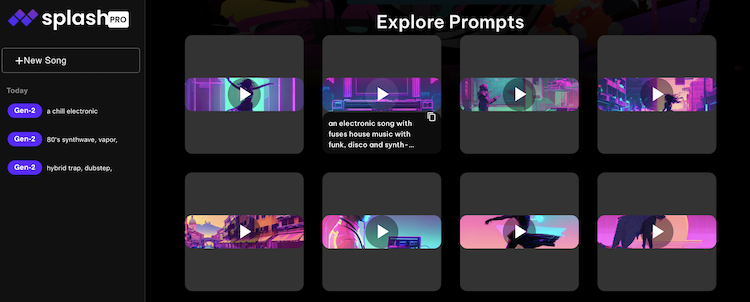
“You can generate lyrics and get a generative voice that sings for you,” says Wickremeratne.
“Ownership and rights give us the ability to control our own destiny and not be at the mercy of legal complexities that come with partnerships and licensing agreements,” she adds.
Gen-2 also boasts an extensive list of genres that users can generate. Wickremeratne says they specialize in a Gen-Z and Alpha-inspired music catalog because, in the past, they ‘have always been a core audience of Splash.’ She adds, “A lot of EDM, hyperpop, lo-fi, funk, hip hop, trap, dubstep — those kinds of genres. We feel like that’s a key differentiator for us.”
This constant diversification and growth of the Splash catalog, according to Wickremeratne, remains one of the key goals for the company. “Our catalog is always growing because our music team’s work isn’t done. They are continuing to widen and expand the genres and music styles we offer.”
Wickremeratne says Splash Pro Gen-2 is all about more control and customization options— the intuitive user interface allows just that. “The platform is set out so that people get music that matches their prompt much faster than others — and they get a lot more choices.”
“Users can leverage many levers to tweak their music, whether it’s adding lyrics or changing the length of the song,” explains Wickremeratne, concluding with, “Splash brings many nuanced customization options for users.”
Elaborating on the tool’s ease of use, Wickremeratne reveals how users can quickly sign up for the Splash Pro free tier. “Users can experiment with unlimited track generations before deciding whether they need a paid version with more features.”
She adds, “You type in a description of the song you want to hear — say, a romantic ballad or a house track from the nineties. Add BPM, and add the genre you want. In just a few seconds, you’ll get five short samples that you can listen to that match your prompt.”
Users can extend these samples to different lengths. They can add lyrics, singing, or rapping to the track to create downloadable full-length songs in multiple file formats.
After multiple AI releases over the years, Wickremeratne shares that the biggest pivot for the company occurred after various breakthroughs in Machine Learning (ML) technology. “Our products are heavily inspired by companies like ChatGPT and Midjourney, which revealed to the world how powerful text could be as an input method.”
Wickremeratne explains that these ML breakthroughs ‘allowed us to achieve a longstanding, ambitious goal for Splash — to allow people to make music with AI.’ This shift led to Splash’s March 2023 release of Beatbot, a text-to-music experiment to gauge the usage of an AI music service with AI rapping.
Just three months later, in June, Splash launched Splash Pro Gen-1, calling it the tool that brings ‘AI-powered music at the speed of a text prompt.’ Gen-1 offered customization features such as BPM specification, generative and editable lyrics, 15 AI rappers and singers, as well as song length and arrangement options. Wickremeratne reveals that amateur DJs, creators, and bloggers on YouTube and TikTok had been early takers of Gen-1.
With the September release of Gen-2, Splash now boasts its fully generative music model, producing 44.1kHz stereo quality audio, with AI mastering tools, high-quality wav and stem downloads, and even the ability to create lyric videos.
The generative platform isn’t new to the AI business. Splash (formerly Popgun) first appeared on the music landscape in 2017, led by ex-Twitter alums Stephen Phillip and Richard Slatter, who also founded We Are Hunted. In 2012, Twitter purchased this machine-learning music discovery tool.
Splash went on to secure seed funding in 2018. By 2020, the ‘Splash — Music & Skate’ game had been introduced on Roblox, allowing players to create music and perform to live audiences inside virtual venues. The company then completed a $20 million Series A round in 2021 — co-led by Amazon’s Alexa Fund and BITKRAFT Ventures, with participation from Khosla Ventures and King River Capital.
Wickremeratne recalls how Splash focused on growing the Roblox game as the biggest virtual music festival, reaching over 4 million monthly active users. “We created the Roblox game to build our loop library. The game allowed players to perform music live on a virtual stage using a beatmaker instrument — a DJ pad with 48 buttons for different sounds that could be combined in different ways to make really cool music.”
Splash began building its ‘proprietary music catalog’ in 2019, ‘first for our app, then Roblox, and now for Splash Pro.’ Wickremeratne adds, “All the while, we’ve continued to invest in R&D to improve our music and voice generation and other AI capabilities.”
Wickremeratne relays that these efforts eventually led to the data that now underpins Splash AI training. The platform deployed this music across their Roblox game and mobile app while also training their AI models on it.
“There’s always been an engine running in the background,” Wickremeratne explained. “Splash has always been about democratizing music creation — putting really easy-to-use, simple, intuitive music tools in the hands of as many people as possible. There’s a real joy to creating music that you can’t get in quite any other way.”
Gen-2 has only been on the market for two months, so predicting the next developments is difficult.
As Splash’s AI model grows bigger and gains more sophistication, new sounds or even genres could emerge. It’s also inevitable that competitors will continue to innovate in the generative music space with gusto. However, with their models trained on entirely different datasets compared to Splash AI, will these new entrants bring completely unique sounds to differentiate themselves?
There’s also the possibility of text-to-music AI becoming mainstream. If producers start incorporating the sounds of Splash Pro into their work, it could signal a seismic shift in music creation and redefine what it means to ‘make’ music.
For now, Wickremeratne is closely watching how it all develops and adjusting Splash Pro’s roadmap accordingly.
Splash Pro subscription options include a Free tier, followed by a Starter tier ($10 per month) meant for creators looking to monetize their content. A Max tier ($49 per month) is meant for teams, developers, and companies. Splash also offers an Enterprise option for companies that require special API access or other advanced support.
Link to the source article – https://www.digitalmusicnews.com/2023/10/11/splash-pro-gen-2-ai-text-prompt/
Recommended for you
-
Sawtooth EP Series Electric Bass Guitar with Gig Bag & Accessories, Surf Green w/Pearl Pickguard
$239,98 Buy From Amazon -
TUOREN Gold Bugle Cavalry Trumpet Brass Instrument for School Band Cavalry Beginner Military Orchestra W/Carrying Bag
$28,99 Buy From Amazon -
Elixir Strings, Acoustic Guitar Strings, 80/20 Bronze with NANOWEB Coating, Longest-Lasting Bright and Focused Tone with Comfortable Feel, 6 String Set, Light 12-53
$30,00 Buy From Amazon -
Stagg WS-AH235 Eb Alto Horn with Case
$0,00 Buy From Amazon -
AODSK Weighted Piano 88-Key Beginner Digital Piano,Full Size Weighted keyboard with Hammer Action,with Sustain Pedal,2x25W Stereo Speakers,MP3 Function,Black
$279,99 Buy From Amazon -
Trendy Soprano Ukulele for Beginners 21 Inch Hawaiian Wood Ukelele for Adult Student Starter (Light Blue)
$45,99 Buy From Amazon -
WINZZ HAND RUBBED Series – Concert Ukulele Vintage Hawaiian Uke with Online Lessons, Bag, Tuner, Strap, Extra Strings, Fingerboard Sticker, 23 Inches, Dark Hunter Green
$62,99 Buy From Amazon -
Behringer Perfect Pitch PP1 Eurorack Module
$99,00 Buy From Amazon









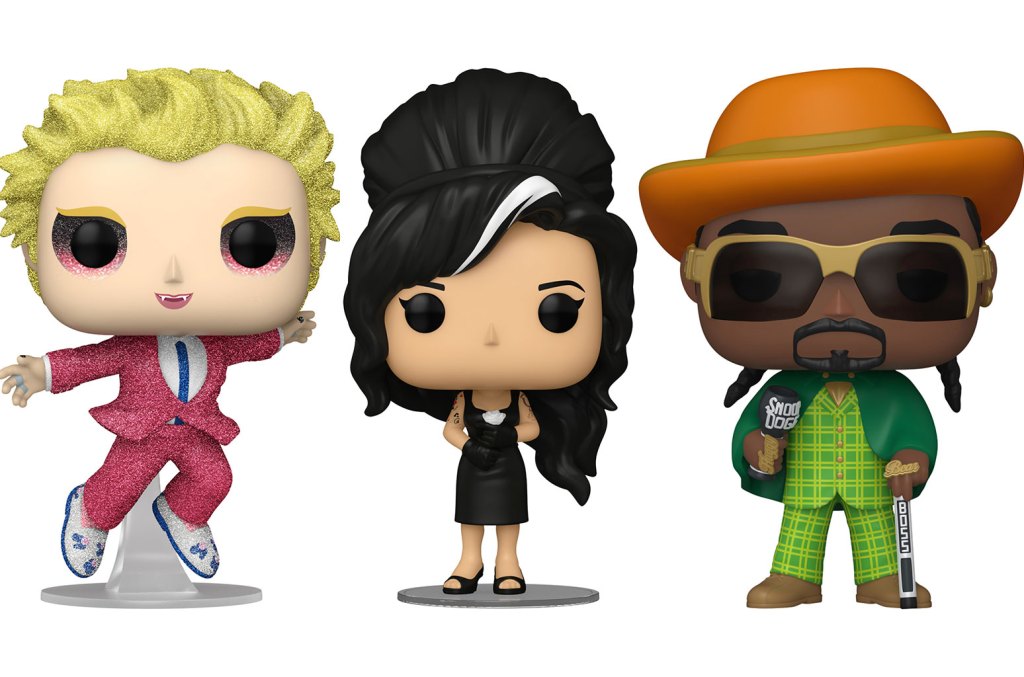


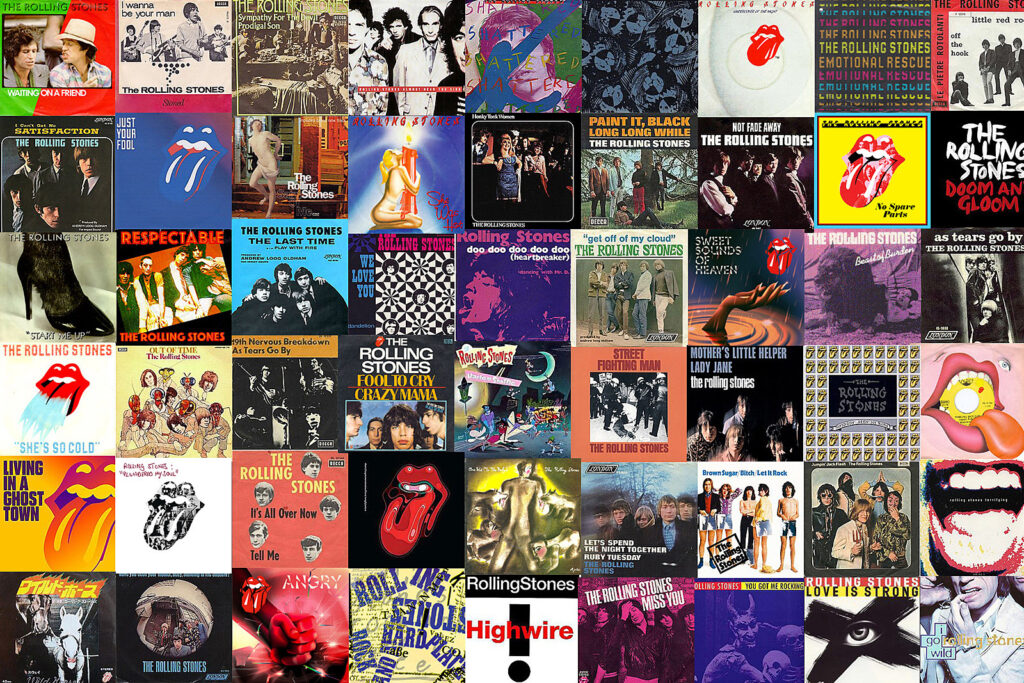
Responses